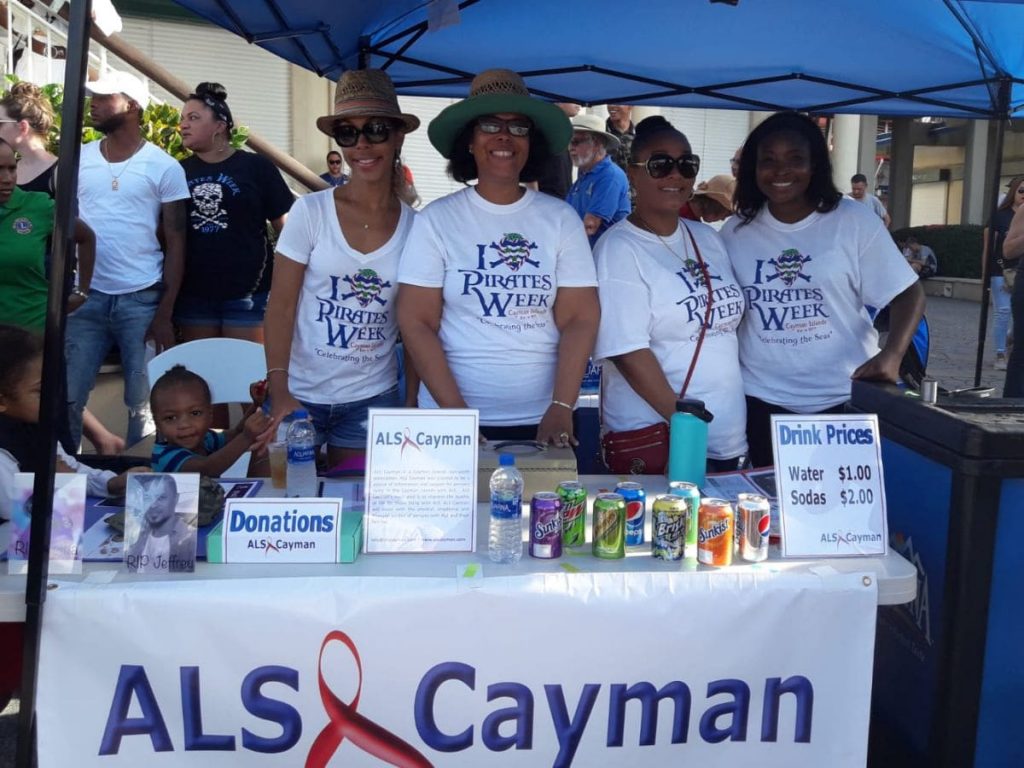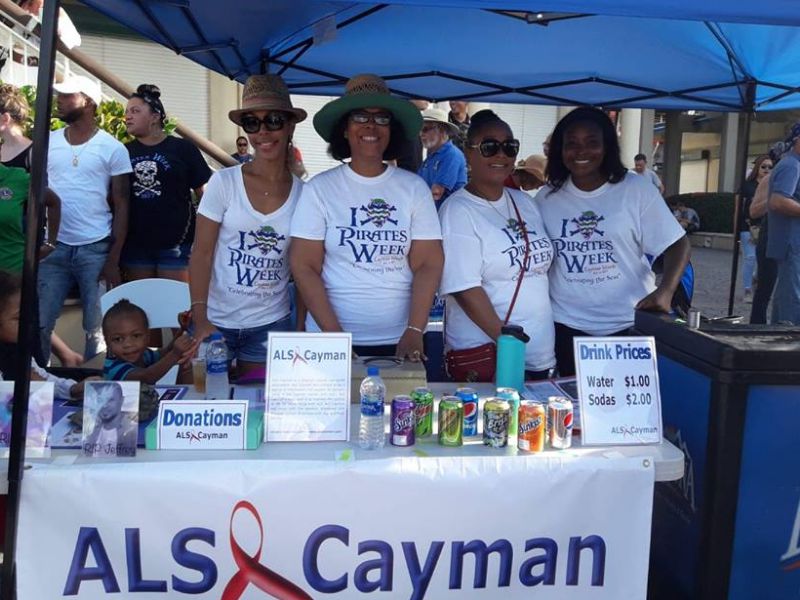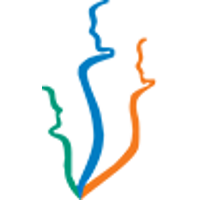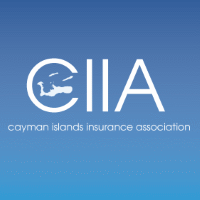
(CNS Local Life): A recently established non-profit in Cayman dedicated to supporting people suffering from ALS (amyotrophic lateral sclerosis), or Lou Gehrig’s disease, is raising awareness of this debilitating condition as it seeks funds to help patients with their medical needs. Toward this goal, ALS Cayman in May has been stepping up its social media presence as well as participating in various events as part of ALS Awareness Month.
The organisation is also receiving support from Dr Sharn Mentz who, in honour of Cayman resident Jeffrey Dyson, who passed away last year from ALS, is taking part in the OluKai Ho’olaule’a eight-mile paddleboard race in Hawaii on 9 June, to raise awareness of the disease and funds for ALS Cayman. Mentz, who is participating in the race for the fourth straight year, has set up a GoFundMe page to take donations.
As of last year, according to statistics compiled by the non-profit, five women and four men in Cayman had been struck by the disease, with two of those patients passing away in 2018. The chief objective of this organisation is “to support ALS patients to remain as independent and as comfortable as possible, for as long as possible”.
Part of that support involves assessing and addressing the needs of the known ALS patients in Cayman. Adonza Harrison, a director of ALS Cayman, detailed some of the aims of the organisation. “We would…like the ability to invite medical experts based overseas to provide educational sessions to the medical professionals in Cayman, who are willing to assist ALS patients,” she told CNS. “We also want to use funds to help ALS patients to travel overseas for medical treatments which are not available on island” as well as purchase medical equipment.
The charity is also compiling data on people living with ALS or have died due to the disease, Harrison said, adding that the group’s website has an online form for people to share this information confidentially.
The other board members are Dr Luana Look Loy (director and chair); Danielle Look Loy Dyson (director and treasurer), whose husband was Jeffrey Dyson; Stephanie Scott (director and secretary); Jovanna Ebanks (director); and Kimberly Masters (director). ALS Cayman said in a letter seeking sponsorship that it was founded by a small group of people who “have been personally affected by ALS. With first-hand experience, we are acutely aware of the difficulties and challenges encountered.”
And those difficulties eventually become insurmountable. “ALS is a rare, rapidly-progressive neuro-degenerative condition that affects nerve cells in the brain and spinal cord,” the organisation explained. “As the illness progresses, it becomes increasingly difficult to initiate and control muscle movements, thereby resulting in significant disability. Those suffering from this incurable condition can lose the ability to walk, talk, eat, drink and breathe unaided.”
The most famous person to suffer from ALS, apart from baseball player Gehrig, is theoretical physicist Steven Hawking, who defied the odds by living until he was 76. The average survival time after onset of the disease is three to five years, though people have lived up to 10 years or more. While there are some medications on the market to treat the disease, it remains incurable.
In Cayman, a major issue is the lack of support available for patients, Harrison explained, mainly due to a lack of information. “ALS is also a rare condition which usually affects 1 in 100,000 worldwide, so many people do not know about (the disease),” she said.
Since its establishment, the non-profit has participated in various events, including taking a booth during last year’s Pirates Week and the Guardians Alive walk/run in April, in which ALS Cayman received proceeds from that event.
As part of efforts to raise the profile of ALS Cayman, the organisation held a launch event Friday, 24 May, to introduce the non-profit to the medical and insurance community as well as special needs professionals and potential sponsors, among others.
Harrison hopes increased publicity for ALS Cayman will help people understand the trials that ALS patients must endure. “Whilst unfortunately patients suffer muscular atrophy, their brains remain fully functional and as such ALS patients need to be treated with due respect for their mental capacity but with patience for their myriad physical challenges,” she said.
For more information, go to the ALS Cayman website or Facebook page




Tiny isolated populations tend to have high rates of particular diseases and conditions. The increasing population and immigration will eventually help, which is nice.
You can’t make such conclusion until we know who five women and four men are, their age, background, lifestyle, ancestry etc.
Once upon a time that flag leaned against every corner in the USA – but we saw the bearers get driven out in a blaze of fire.
Shared flag (or rhetoric) a people does not make.
Get over yourself.
If I am not mistaken in my math, the prevalence of ALS in Cayman (based on 9 mentioned cases) is 11 times higher than in the USA. That is a mind blowing number. The question is WHY? Even 2 times higher would have been a red flag.
(9 anl.cases/60,000 CI population) / (5,000 anl.cases/370,000,000 the US population) = 11 times
Reference:
* Approximately 5,000 people in the U.S. are diagnosed with ALS each year per The ALS Association
* There are about 240 people known to be living with motor neurone disease, or MND – of which ALS is the most common in the UK (70mil. population)
ALS is very rare. A little over 5k people diagnosed in the USA each year. 9 people diagnosed on the 2×4 rock with population of 60k people is an EXTREMELY high number. Investigation by health authorities is not just warranted, it must be mandatory.
It is not quite clear to me from the article if fundraisers are to financially support people with ALS or mostly for awareness of the disease. If it is to pay medical bills then another question arises why medical insurance doesn’t cover it? Medical insurance is mandatory in this country. Do they exclude ALS? If do, why?
Meantime people who take care of the victims of debilitating diseases are true heroes.
P.S. The latest news: Lloyds Insurers Refuse To Cover 5G Wi-Fi Illnesses. Not sure how accurate this is, but if it is, everyone should start thinking.
https://principia-scientific.org/lloyds-insurers-refuse-to-cover-5g-wi-fi-illnesses/
Thanks to current and previous ministers of health, like anthony eden, insurrance companies can walk away and leave these people and many others on the street begging for help.
What a disgrace for a so called christian society.
Every disease causes its victim to suffer. Healthy people, even friends and family members at first appear to understand, then drift away with their own lives. This is they way things are, like it or not.
While it is possible to be aware of every disease, I don’t see the point, unless….. While it is possible to have an organization behind every disease, unless the organization makes sure people are aware of what might be causing the disease (controversial or not, scientifically proved or not) I also don’t see the point.
So I would start with asking a question: How many people and when were diagnosed with ALS in the Cayman Islands to see if there is a connection with environmental changes that trigger epigenetic changes (gene expression) that cause an increase in neurological diseases.
Then I would start reading on the topic and even if there a slightest chance of identifiable risks present in the Cayman Islands environment, I would point to these risks to make sure people are aware. That is what I think should be the goal of every “disease awareness” organization.
So here is the article for your reading. It is up to you to accept or reject the hypotheses. The article is published by sciencedirect, which explores scientific, technical, and medical research and lists 127 references.
“Are rises in Electro-Magnetic Field in the human environment, interacting with multiple environmental pollutions, the tripping point for increases in neurological deaths in the Western World?” ( Medical Hypotheses (Volume 127, June 2019, Pages 76-83)
“..Two of the authors can look back over 50 clinical years and appreciate the profound changes in human morbidity across a range of disparate conditions – autoimmune diseases, asthma, earlier cancer incidence and reduced male sperm counts. In particular have been increased autism, dyslexia, Attention Deficit Hyperactivity Disorder and neurological diseases, such as Amyotrophic Lateral Sclerosis, Multiple Sclerosis, Parkinson’s Disease, Early Onset Dementia, Multiple System Atrophy and Progressive Supranuclear Palsy.”
https://www.sciencedirect.com/science/article/pii/S0306987719300040
Motor neurone disease would be the better way to describe the disease, colloquially, given Cayman is British, not American.
Colloquially, Cayman is not British.
However, the fact that you insist otherwise makes you quintessentially British.
That diseased, colonising state of mind you possess ought to be retired – like yesterday.
Great job by the ALS Cayman foundation.
Wish you all the best!
I suppose it may depend on one’s social class. I cannot think of any aspect of my thought process that needs review. See that flag In the corner? All I need to know.
Looks like a white flag these days.